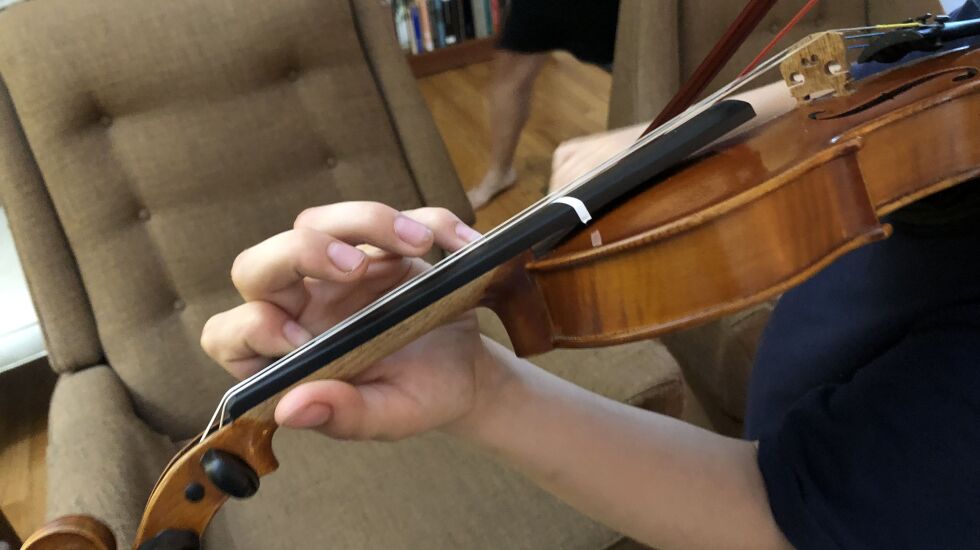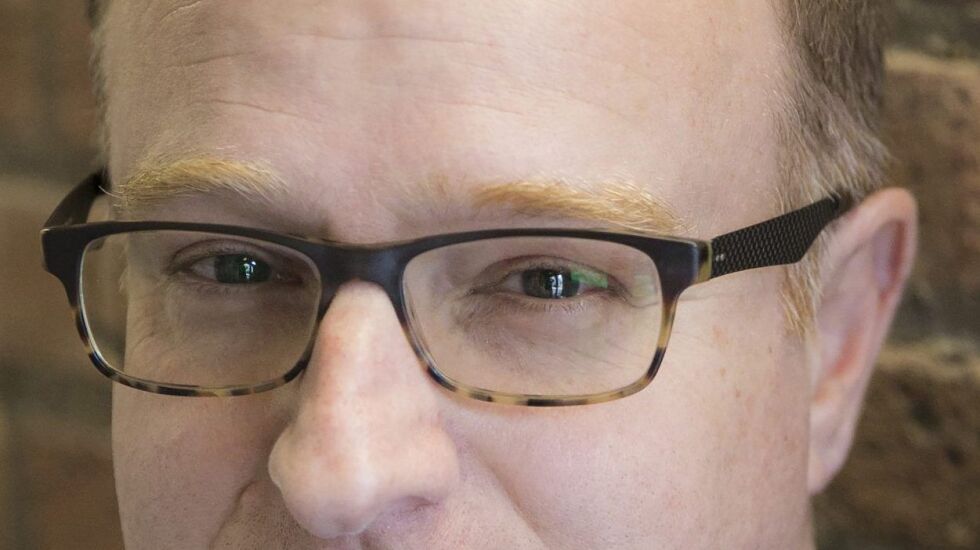
The little boy walked onto the stage in his freshly starched shirt and pants bunched at the ankles.
The look on his face wasn’t quite fear as much as astonishment that so many people were there to see him play.
The grand piano at his back dwarfed him. He tucked the tiny violin under his chin, raised his bow and began to play.
The sound that emerged brought to mind a rusty, warped screen door closing.
But to me, his father, it was as beautiful as a Mozart symphony.
The performance lasted not even two minutes. My only disappointment? That I couldn’t applaud and record a video at the same time.
This was seven years ago. Lucca, a Suzuki music student, was only 4 then, and it was his first recital.
For many of the intervening years, violin, especially practicing violin, was painful drudgery — for Lucca, his mother and me, his home practice partner.
“I hate violin,” he’d say after I’d asked him for maybe the 15th time to take his instrument out of its case to practice. “Why are you making me do this?”
“For one, we’re paying a lot of money for your lessons, and, two, you’ll thank me later,” I’d snap back.
When he’d finally put bow to strings, he’d just race through the music.
I’d try reasoning: “You never hear anyone say, ‘I wish I’d never gone to college.’ It’s the same thing with learning an instrument.”
“I don’t want to do this any more.”
Bribes sometimes worked: Do a good practice, and you get 30 minutes of computer games.
At some point, though, you realize the struggle is as much about you, the parent, as it is about your kid. Did I ever think that little boy on stage back then might one day be playing in a professional orchestra? Sometimes, sure. And did I like to just oh so casually mention to other parents that my child was now playing Bach? Guilty.
Still, I didn’t want to be that parent — the one trying to mold his child into a little me, the me I might have been.
We thought about letting Lucca quit violin, saying goodbye to the screechy muddling through his latest piece, the “gold” medals for practicing 100 days straight, the end-of-year concerts at which dozens of young violinists would cram together onstage.
Then, Lucca got a new teacher. It wasn’t that we didn’t love all of the teachers who came before. But something was different about Vannia Phillips. She offers deserved praise but doesn’t hand out gold stars, stickers or M&Ms when Lucca holds the bow the right way.
She treats Lucca like a musician — a grownup musician.
He likes that — even if he’s not at all impressed that she has accompanied some legendary figures in pop music, too: Smokey Robinson, Stevie Wonder, Barry Manilow.
And he’s improved. One day, Lucca played a Brahms waltz with his teacher, and it brought tears to my eyes. I thought back to that little boy in the starched shirt and rolled-up pants whose bow scraped and skidded against the strings.
When Ms. Vannia wants Lucca to do something extra — say, a two-day workshop — she says she’d like him to do it, though it’s clear he doesn’t really have a choice.
OK, practices sometimes are still a chore. But often that’s because Lucca now wants to race ahead and maybe play a piece from Book Three even though he’s only halfway through Book Two.
Lucca’s little brother Matteo, 5, has just started playing the cello.
Lucca, now 11, is at an age he usually tolerates his brother as a playmate only if he can’t find anyone else. But the other day I found them in our bedroom, each holding his instrument. Lucca offered to let Matteo accompany him. If we get this done, Lucca whispered, Dad will let us play on the computer.
Lucca raised his bow and told his brother: “So when I go like this” — at which point he sniffed — “that’s a cue. So ready? Three, two, one, go.”
I pulled out my phone. And I started to record.

FATHERHOOD: AN OCCASIONAL SERIES
This is one of an occasional series on fatherhood by Sun-Times staff reporter Stefano Esposito, the dad of two young sons.







